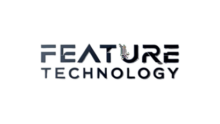As eCommerce businesses scale, one pivotal decision can significantly influence their growth trajectory: should they hire an in-house marketing team or partner with an experienced ecommerce agency? Both paths offer distinct advantages, and the right choice largely depends on a company’s goals, resources, and growth stage. Here’s a breakdown of the pros and cons to help navigate this decision.

Content
The Case for In-House Teams
Building an internal marketing team offers complete control over brand voice, strategy, and execution. This model is especially appealing to brands that require tight integration between departments—think frequent product launches or highly specialized industries.
Pros:
- Brand Familiarity: An in-house team lives and breathes the brand. Over time, they develop a deep understanding of the company’s identity, audience, and products.
- Agility: Immediate access to team members allows for quicker feedback loops, faster decision-making, and tighter project coordination.
- Long-term Investment: Internal staff can be nurtured and upskilled to grow with the company, creating a loyal and knowledgeable workforce.
Cons:
- Limited Expertise: Smaller teams may lack specialized skills like SEO, paid ads optimization, or UX strategy, which can hamper growth.
- Higher Overheads: Salaries, benefits, training, and recruitment costs add up, especially when assembling a full-stack marketing team.
The Case for Ecommerce Agencies
Partnering with an ecommerce agency unlocks access to a team of experts dedicated to delivering results. These agencies typically have a proven track record and deep industry experience across platforms and marketing channels.
Pros:
- Diverse Expertise: Agencies offer a broad range of skills—SEO, CRO, email marketing, PPC, and social media—under one roof.
- Scalability: Businesses can scale their efforts quickly without the long lead times of hiring and training.
- Technology & Tools: Top agencies invest in premium tools and analytics platforms, giving clients access to cutting-edge marketing technologies.
Cons:
- Less Integration: Agencies might not be embedded in your company culture, which can result in a learning curve.
- Variable Quality: Not all agencies deliver equal value, so careful vetting is essential.
Making the Right Choice
If your business is early-stage or looking to optimize limited budgets, starting with an ecommerce agency can provide immediate impact without the fixed costs of an internal team. For example, agencies highlighted in this list of top ecommerce agencies have consistently helped brands boost visibility and conversions through data-driven strategies.
Conversely, if your company is mature, has complex needs, or seeks long-term brand consistency, investing in an in-house team might provide the integration and cultural alignment you need.
The Hybrid Model
More businesses are embracing a hybrid approach—an internal team focused on strategy and brand management, supported by an agency executing technical and performance-driven campaigns. This model leverages the best of both worlds, maximizing ROI while maintaining control.
Final Thoughts
There’s no one-size-fits-all answer. Whether you go with an in-house team, an ecommerce agency, or a mix of both, the key is aligning your choice with your growth objectives, budget, and operational structure. As competition intensifies in the digital marketplace, making the right call could be your business’s competitive edge.





